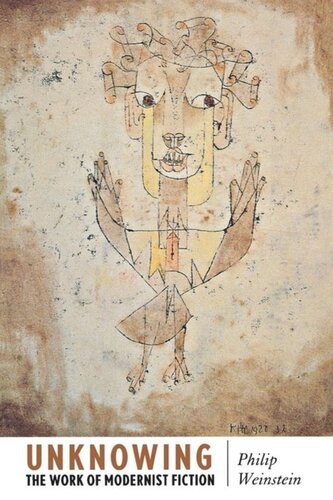

Most ebook files are in PDF format, so you can easily read them using various software such as Foxit Reader or directly on the Google Chrome browser.
Some ebook files are released by publishers in other formats such as .awz, .mobi, .epub, .fb2, etc. You may need to install specific software to read these formats on mobile/PC, such as Calibre.
Please read the tutorial at this link: https://ebookbell.com/faq
We offer FREE conversion to the popular formats you request; however, this may take some time. Therefore, right after payment, please email us, and we will try to provide the service as quickly as possible.
For some exceptional file formats or broken links (if any), please refrain from opening any disputes. Instead, email us first, and we will try to assist within a maximum of 6 hours.
EbookBell Team

0.0
0 reviewsPhilip Weinstein explores the modernist commitment to "unknowing" by addressing the work of three supreme experimental writers: Franz Kafka, Marcel Proust, and William Faulkner. In their novels, the narrative props that support the drama of coming to know are refused. When space turns uncanny rather than lawful, when time ceases to be linear and progressive, objects and others become unfamiliar. So does the subject seeking to know them. Weinstein argues that modernist texts work, by way of surprise and arrest, to subvert the familiarity and narrative progression intrinsic to realist fiction. Rather than staging the drama of coming to know, they stage the drama of coming to unknow. The signature move of modernism is shock, just as resolution is the trademark of realism.Kafka, Proust, and Faulkner wrought their most compelling experimental effects by undermining an earlier Enlightenment project of knowing. Weinstein draws on major Enlightenment thinkers to identify constituent components of the narrative of "coming to know"—the progressive narrative underwriting two centuries of Western realist fiction. The book proceeds by framing modernist unknowing between prior practices of realist knowing, on the one hand, and, on the other, certain later practices—postmodern and postcolonial—that move beyond knowing altogether. In so doing, Weinstein proposes a metahistory of the Western novel, from Daniel Defoe to Toni Morrison.